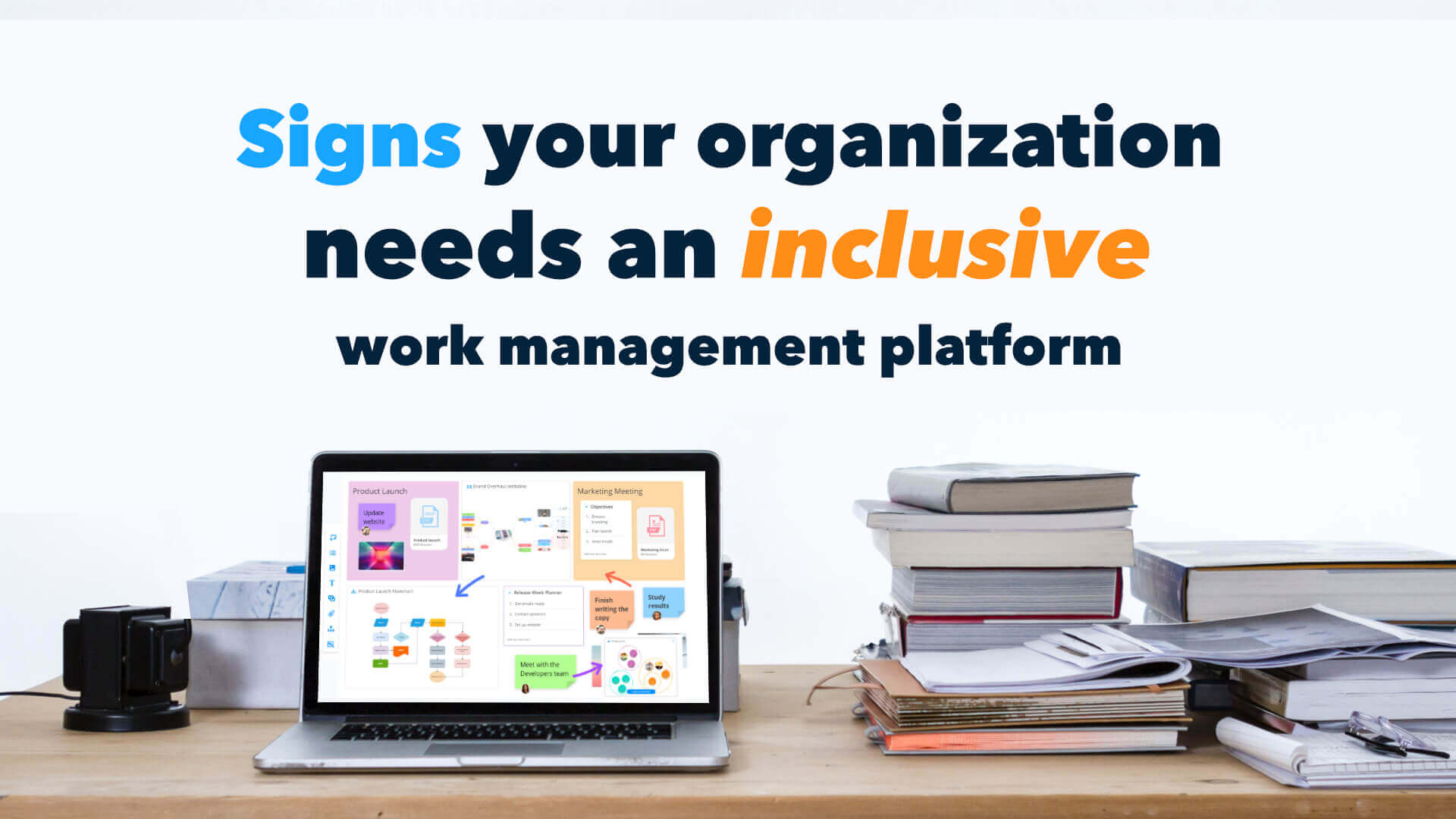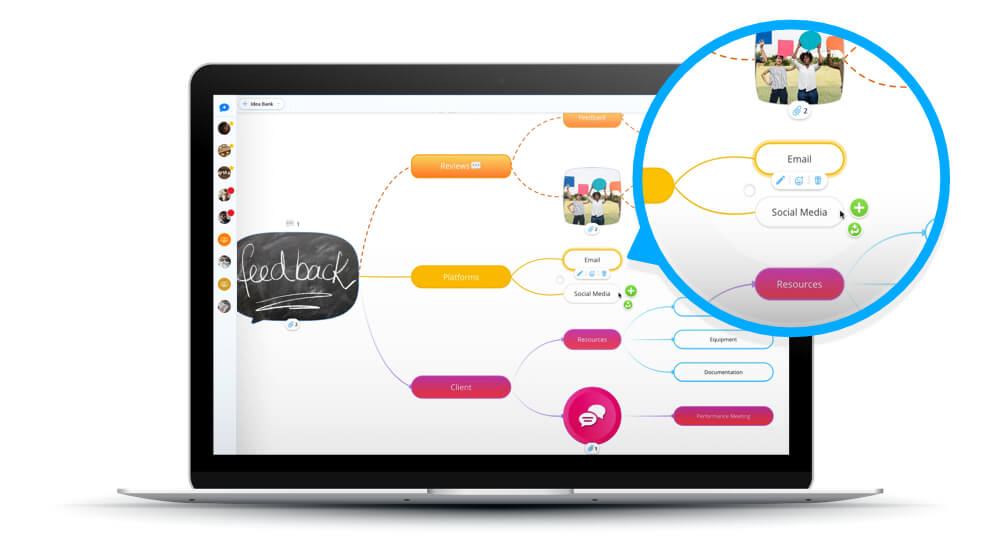October 18, 2021
4 signs your organization needs an inclusive work management platform

Some workplace things are simple. You run out of sticky notes? Order more sticky notes. Light bulbs gone in the office? Replace them with new ones. What’s harder to detect, of course, is the effectiveness of the work tools we use every day. It’s one of the few curses of routine, through repetition, much of what we do on a daily basis ultimately becomes rendered invisible.
It’s something you’ll have likely experienced yourself if you’ve ever driven to work only to find that you can’t remember the journey at all, the whole thing done on autopilot. While this phenomenon is actually pretty helpful in memory processing terms – you wouldn’t want to store every single mundane thing you do every day – it can make opportunities for improvement easy to miss. As they say, a worker is only as good as their tools, and if you’re using the wrong one in your office, the knock-on effect can be more severe than you think. So, keep reading for four classic signs your office is in need of a more inclusive work management tool.
You hop between applications
We’ve all been there. Sitting down to start the day and after an hour it feels like all you’ve accomplished is a back-and-forth between the task at hand and incoming emails. Timely communication is so often crucial to working life, yet moving between email, your to-do list app and a work document ranks high on the busy-o-meter but low on the scale for actual productivity. The average person takes over twenty minutes to refocus on a task once distracted, so while you might think a “quick response” to this email might only take a minute or two, in work terms it’s actually a costly diversion indeed. If this sounds familiar to you it’s a sure sign a holistic and inclusive work tool is much needed in your workplace.
Creativity is lacking
It’s no secret that creativity in the workplace makes for magical results (just take it from the booming tech sector which is big on innovation). The problem, of course, is actually creating the space and time for creative thoughtt to flourish. Though we know that ideation is important, many of us don’t interweave it into our daily routine. The truth is that creativity is not an elusive talent, but something anyone can exercise with the right practice – innovation is at its best when connected with collaboration and consistency. Introducing an inclusive, one-stop work tool like Ayoa means that firing off ideas and thinking from a different perspective can easily become a part of your everyday routine. With a purposeful framework for creativity ready to be utilized, a tool like Ayoa can help foster a flexible space for innovation, regardless of individual employees’ roles and skills.
Some employees are happier than others
Of course, we’re all just human and everyone is prone to an off day now and then – but still, on the whole, good workplaces should strive for an equitable work environment in which everyone feels seen and heard. If you’ve noticed that some members of your workforce are quiet, disengaged or even straight up unhappy then it’s absolutely certain that new tools are needed to connect and motivate the workforce as a whole. While workplaces are generally getting better at recognizing neurodiversity in the workplace, many don’t realize that forcing neurodivergent (ND) people to work in the same way as their neurotypical colleagues can create friction and dissatisfaction. Equally, siphoning off ND individuals by making them use different tools altogether can make them feel alienated. Hence opting for a genuinely inclusive app like Ayoa can help resolve this problem by helping all employees regardless of skill, rank or neurological makeup to work together in a way that suits every person individually.
Business growth has stagnated
If sales are down and apathy is up, take it as a warning sign that your work tools aren’t doing what they should. Sometimes this isn’t because the work tools are disliked by employees unanimously, but because they aren’t effective in aiding collaboration from your diverse team. When you consider that 1 in 7 people are neurodivergent, and that global companies like NASA seek out ND employees for their creativity, it’s blatantly obvious how important workplace diversity is to overall success. If you want to leverage the power of that diversity, make sure your shared work tool is one that empowers every employee no matter who they are or how they like to work. By doing this you can reignite business growth and foster a happier, healthier more inclusive workplace!

The neuro-inclusive collaborative digital workspace
Ayoa is a neuro-inclusive digital workspace that allows individuals to work the way which their brain likes alongside others. Visual mind maps, flexible task management, intuitive whiteboards and more all adapt for neurodiversity to thrive.
Try it for free
